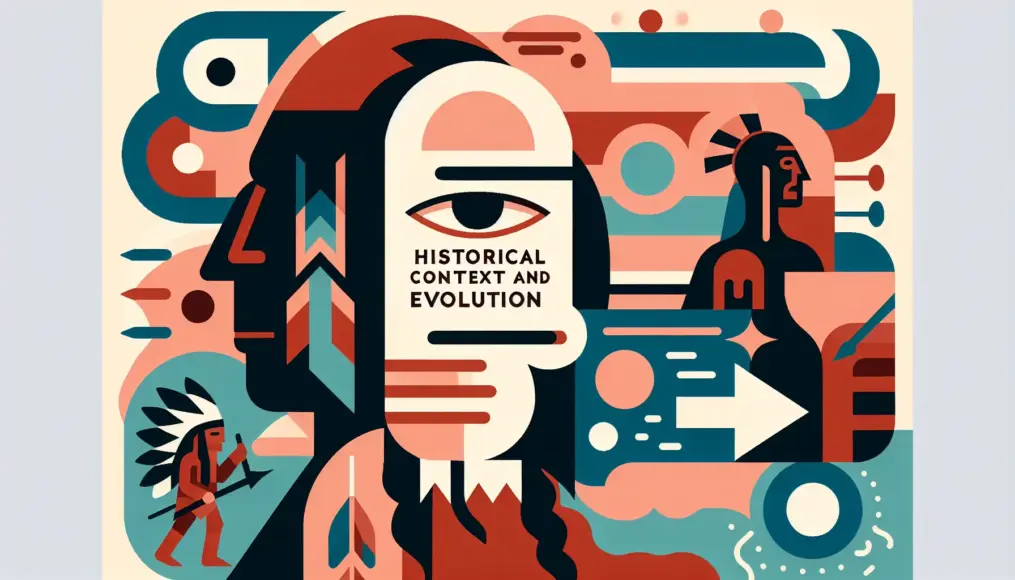Japan’s bureaucratic system is deeply embedded in our political and social fabric. However, it’s essential to recognize that beneath its surface lie numerous challenges and issues that we may often overlook. In this article, we’ll reflect on the history of bureaucracy in Japan, examine its influence, discuss the current problems it faces, and explore potential reforms for the future.
Understanding the bureaucratic system is crucial for grasping contemporary politics. By learning from past experiences, we can strive to create a more effective system. Let’s embark on this journey together, as your insights and opinions can significantly contribute to this important discussion.
- Historical background and evolution of the bureaucratic system
- Specific issues confronting the current bureaucratic system
- Directions for future reforms
The Historical Background of Japan’s Bureaucratic System
Japan’s bureaucratic system is a vital institution that has developed over a long history. It plays an essential role in implementing the country’s policies and laws, significantly impacting our daily lives. Understanding its origins, evolution, and the changes it underwent after World War II is crucial for comprehending modern politics in Japan. Let’s explore the historical backdrop of this bureaucratic system.
Origins and Development of the Bureaucratic System
Japan’s bureaucratic system is based on political structures that have existed since ancient times. During the Heian period, the aristocracy held political power, but gradually, a more centralized system began to take shape. Later, in the Edo period, the feudal system was established, leading to the appointment of bureaucrats in various domains. As this evolution unfolded, the role of bureaucrats became increasingly important, and with modernization, the system began to take on a more structured form.
Following the Meiji Restoration, Japan rapidly aimed to become a modern nation-state. During this time, the bureaucratic system underwent significant transformation, becoming indispensable for policy-making and execution under a constitutional government. Bureaucrats emerged as key contributors to the country’s development, with an emphasis on nurturing individuals with expertise and knowledge across various fields.
- The bureaucratic system originates from political structures that date back to ancient times.
- The Edo period solidified the feudal system, increasing the importance of bureaucrats.
- The Meiji Restoration marked a significant transformation in the bureaucratic system alongside modernization.
Changes in the Bureaucratic System in Post-War Japan
After World War II, Japan needed to establish a new political system. This led to a reevaluation of the bureaucratic system, incorporating democratic principles. Reforms during this period were driven by a growing demand for transparency and fairness within the bureaucracy. The new system emphasized reflecting the opinions and needs of the citizens, leading to changes in the role of bureaucrats.
As the economy grew, bureaucrats also became involved in making crucial decisions across various sectors, including economic policy and social welfare. Thus, the post-war bureaucratic system has continued to evolve as an entity that directly affects the lives of the citizens.

If you found this article interesting, you might also enjoy reading “The Truth Behind Cabinet No-Confidence Motions: A Comprehensive Look at History and Future.” This piece delves into the historical background of no-confidence motions and their influence on politics, providing further insights into the bureaucratic system.
- Post-war Japan sought to build a new political system.
- There was a growing demand for transparency and fairness in the bureaucratic system.
- With economic growth, bureaucrats have played a role in critical decisions across various fields.
The Role and Influence of Bureaucrats
To truly understand the bureaucratic system, it’s essential to grasp the roles and influence of bureaucrats. They play a crucial part in policy-making, and their decisions significantly impact our daily lives. By recognizing how bureaucrats address societal challenges while reflecting the voices of the citizens, we can better appreciate the importance of our own political participation.
Contributions of Bureaucrats in Policy-Making
Bureaucrats leverage their specialized knowledge and experience to play a vital role in the policy-making process. They collect and analyze a variety of data related to policy formulation and implementation, providing a foundation for effective solutions. In this way, bureaucrats become key information sources that shape national policies and foster discussions.
Moreover, bureaucrats have a substantial influence over the execution of policies. The way they implement the policies they design directly affects the lives of citizens. Thus, the contributions of bureaucrats in policy-making can be seen as pivotal in determining the overall direction of the country.
- Bureaucrats play a key role in the policy-making process.
- They utilize specialized knowledge to provide effective solutions.
- The implementation of policies has a direct impact on citizens’ lives.
Impact on Citizens’ Lives
The policy decisions made by bureaucrats affect our lives in various ways. For instance, areas such as education, welfare, and economic policy are shaped and executed by bureaucrats. When these policies are implemented effectively, they can enhance the quality of life for citizens and steer society in a more positive direction.
On the flip side, the issues surrounding the bureaucratic system cannot be overlooked. Many people feel that bureaucratic decisions lack transparency, which can erode trust between the government and the public. To better serve citizens and realize improved policies, bureaucrats need to ensure transparency and accountability in their processes.
- Bureaucratic policy decisions directly impact citizens’ lives.
- Contributions span multiple fields, including education, welfare, and economic policy.
- Lack of transparency can undermine trust between the government and the public.
Challenges Facing the Current Bureaucratic System
The bureaucratic system plays a vital role in our lives, yet it faces several significant challenges today. In particular, the issues of “lack of transparency” and “institutional rigidity” undermine the trust between the government and the citizens, hindering the effective implementation of policies. By understanding these problems, we can better identify the direction for the reforms we need.
Lack of Transparency and Its Implications
Many people feel that the current bureaucratic system lacks transparency. The decision-making process and the data behind policies are not sufficiently shared with the public, making it difficult for citizens to understand and accept those decisions. This lack of transparency breeds distrust between bureaucrats and the public, resulting in diminished support for policies.
Moreover, without transparency, evidence-based policies crafted by bureaucrats are often met with skepticism. When information is obscured, citizens find it challenging to voice their opinions, ultimately stifling the vibrant functioning of democracy.
- The current bureaucratic system lacks transparency
- Opaque decision-making fosters distrust among citizens
- Lack of visibility hinders democratic engagement
Institutional Rigidity and the Need for Reform
Additionally, the bureaucratic system is often criticized for its lack of flexibility. Given its established historical context, it struggles to respond swiftly to new challenges. In a rapidly changing society, the inability of the bureaucratic system to adapt can lead to ineffective policies that fail to meet the expectations of the public.
As a result, there is a pressing need to break through this institutional rigidity and implement flexible reforms that can respond to change. It is essential to create mechanisms that incorporate not just bureaucratic input but also the voices of citizens, paving the way for more effective policies.
- The bureaucratic system is criticized for its lack of flexibility
- Inability to adapt to a rapidly changing society is a significant issue
- Flexible reforms are urgently needed
Directions for Reforming the Bureaucratic System Toward the Future
In the current bureaucratic system, the reforms we should pursue emphasize dialogue with the public and focus on digitalization and efficiency. Improving the flexibility and transparency of bureaucracy is essential for gaining the trust of the citizens. In this section, we will explore the path that our bureaucratic system should take moving forward.
Reforming with Emphasis on Public Dialogue
At the heart of bureaucratic reform is the importance of engaging in dialogue with the public. When making policy decisions, it’s crucial to reflect the voices and needs of the citizens. For instance, establishing forums that gather opinions from different regions or creating online platforms for feedback can provide spaces for the public to express their views, leading to better policy outcomes.
By prioritizing dialogue with the public, the policy decision-making process becomes more transparent, fostering a deeper trust between bureaucrats and citizens. This, in turn, encourages more people to participate in politics, enhancing the vibrancy of democracy.
- Reflecting the voices of the public is essential
- Creating spaces for public input leads to better policies
- Increased transparency deepens trust relationships
Efforts Toward Digitalization and Efficiency
Next, the focus on digitalization and efficiency is also crucial. In recent years, advancements in technology have led to the digitalization of many operations. By leveraging digital tools within the bureaucratic system, we can enhance information sharing and streamline processes. This will enable quicker and more accurate policy decisions.
Moreover, digitalization serves as a means to facilitate communication with the public. Collecting opinions and feedback online will become easier than ever before. By advancing these initiatives, we can elevate the public’s expectations of the bureaucratic system.
- Utilizing digital technology for operational efficiency
- Enabling quicker and more accurate policy decisions
- Facilitating smoother online feedback collection
Conclusion
In this article, we’ve explored the historical background of Japan’s bureaucratic system, the role of bureaucrats, current challenges, and potential reforms for the future. The bureaucratic system is intricately woven into our daily lives, and there is a growing demand for increased transparency and flexibility. By prioritizing dialogue with citizens and advancing digitalization, we can transform the system into something better.
Each of us has a role to play in deepening our understanding of the bureaucratic system, forming our opinions, and participating actively. This engagement is the first step toward building a better society. As we move forward in politics, the role of the bureaucratic system will become increasingly significant.
- Understanding the bureaucratic system is the first step to political participation
- Enhancing transparency and flexibility is crucial
- Reforms that prioritize dialogue with citizens are essential
Are you ready to pay attention to the future of politics? We invite you to share your thoughts in the comments. Your voice could contribute to the next wave of reform.



Comment